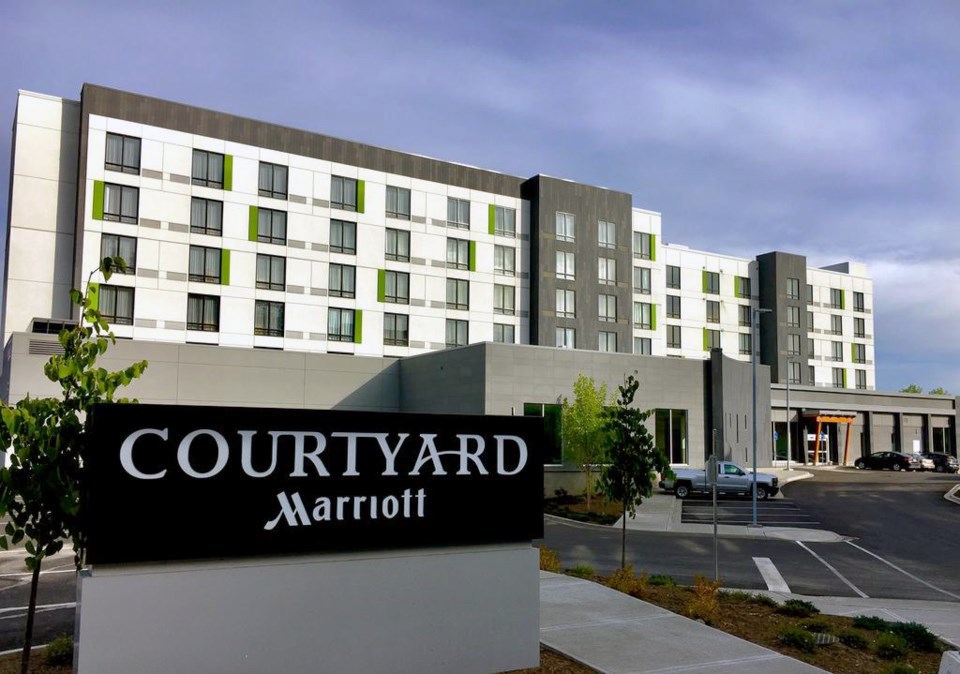Nearly three years after the COVID-19 pandemic delivered a gut-punch to B.C.’s hotel industry, workforce shortages that prevent hotels from operating at capacity still hamper the path to recovery.
The province now has as many as 50,000 job vacancies in tourism and hospitality and federally there’s a shortage of 300,000 workers.
The federal government has adjusted its Temporary Foreign Workers policies to allow the hospitality industry to bring in up to 30 per cent of its workforce from other countries. The program allows them to work while they wait for approval as landed immigrants and that’s helped increase employment numbers, but it’s not enough to fill the thousands of jobs currently available in B.C. hotels.
“Many of the hotels are operating at 70 to 80 per cent capacity because they don’t have people to clean the rooms,” said Ingrid Jarrett, president and CEO of the B.C. Hotel Association. “This is the tightest labour market that we’ve seen and it’s not just our industry, it’s construction, manufacturing, many industries because the baby boomers are retiring and the tech sector is growing.”
Fuelled by megaprojects like the LNG Canada gas terminal, BC Hydro’s Site C dam, Trans Mountain Pipeline and Coastal GasLink pipeline, hotels in the Prince George-Prince Rupert-Fort St. John corridor avoided the precipitous drop in business during the pandemic felt more profoundly in Victoria, Vancouver and the Okanagan, whose economies are more dependent on tourism.
Prince George has significantly increased its hotel room inventory over the past five years to meet the demand for rooms, largely driven by the city’s role as northern B.C. hub for goods and services, health care, and the prevalence of large-scale natural resource projects in the region.
The new hotels – Courtyard Marriott, Pomeroy Inn & Suites, Best Western Plus and Hyatt Place – raised the Prince George hotel room inventory to 1,803, as compared to 2,179 rooms in Kamloops and 650 in Nanaimo.
Vancouver led the country for much of 2022 with a 70.3 per cent occupancy rate through September, but the numbers provincially still well fell short of 2019 levels in most regions. Operating costs across the province have increased between 15 and 25 per cent with hotels paying more for heat, electricity, room furnishings, and food and beverages. Hotel rates have spiked as a result.
Jarrett says the biggest challenge for B.C. hotels trying to fill available rooms is the lack of visitors from the United States, fewer corporate travellers and conventions and a lingering hesitancy for people to cross international borders and travel through airports.
The BCHA continues to work with Tourism HR Canada and the Hotel Association of Canada to widen the stream of skilled and unskilled immigrants seeking hospitality jobs.As a result of pressure from hoteliers, some international students are now allowed to work off-campus more than 20 hours per week.
“Being included with other sectors in priority is our goal,” said Jarrett. “We really need that immigration because there are not enough Canadians to fill the current positions that are empty.
“We tightened immigration (in the early 2000s) at the same time as we were looking at the greatest retirement ever, and because we tightened them and then we had the pandemic when nobody came, we amplified the impact of that lack of workforce at the same time as the economy is looking to ramp up."
While 90 per cent of the country’s hotels increased wages to employees last year, not enough Canadians are taking advantage. Jarrett admits hotels have to do a better job enticing domestic workers to take on full- and part-time jobs as housekeepers, room attendants, guest services/front desk agents, food and beverage servers, maintenance and management staff.
“There are people that would say we don’t pay enough but all the research done by our industry and other outside agencies indicate that’s not the truth,” said Jarrett. “We’ve done a lot of research on pay and benefits and in every region in British Columbia the hotel sector pays above living wage and often, either gratuities or benefits will double their hourly salary.
“We’re a little late to the game but it’s important we tell that story.”
Jarrett, a former Prince George resident, will be in the city March 1-3 for the BC Tourism and Hospitality Conference at the Prince George Civic Centre and Conference Centre.



